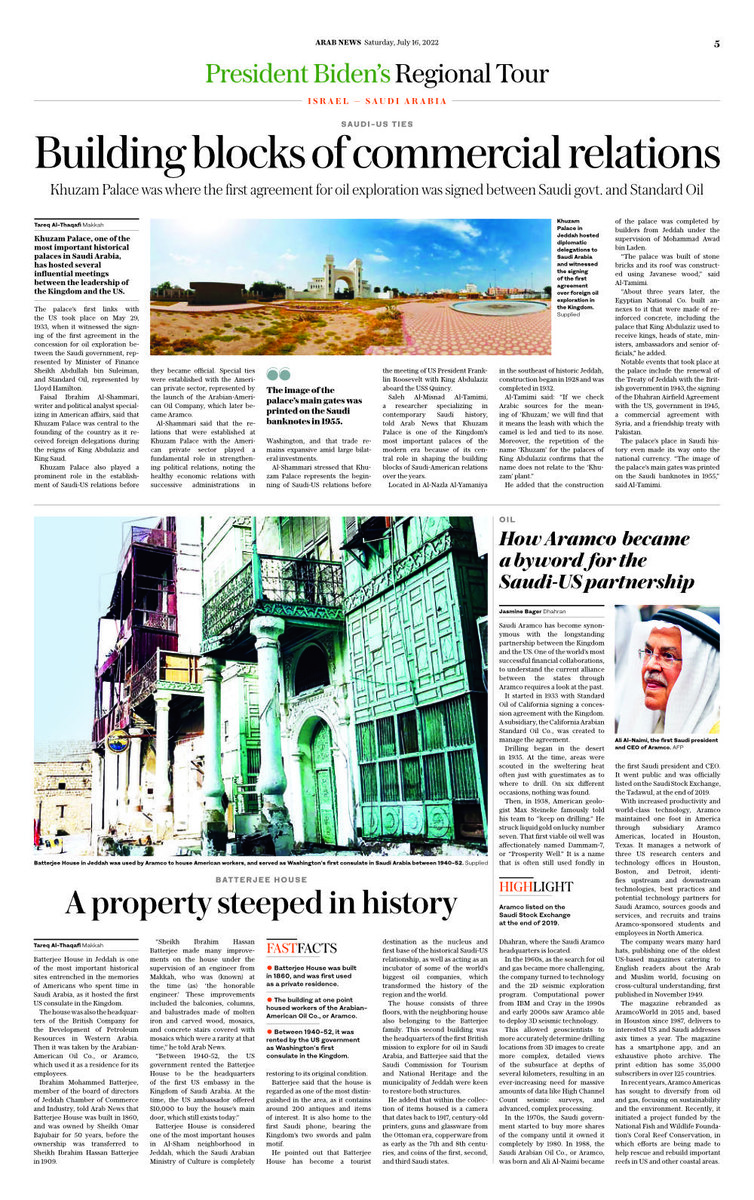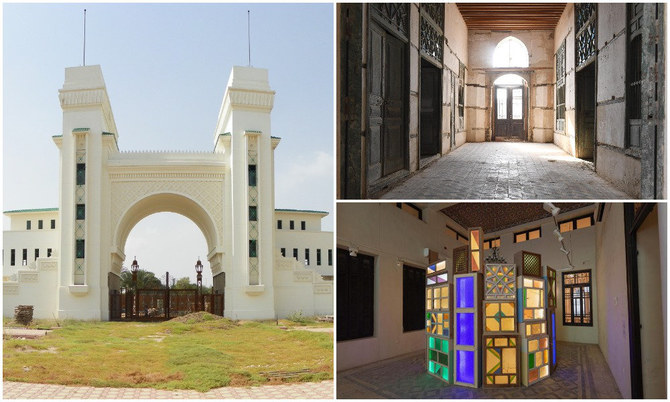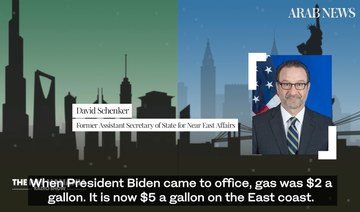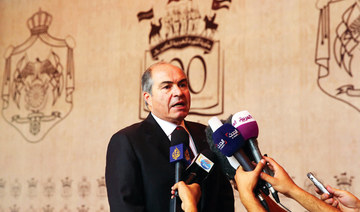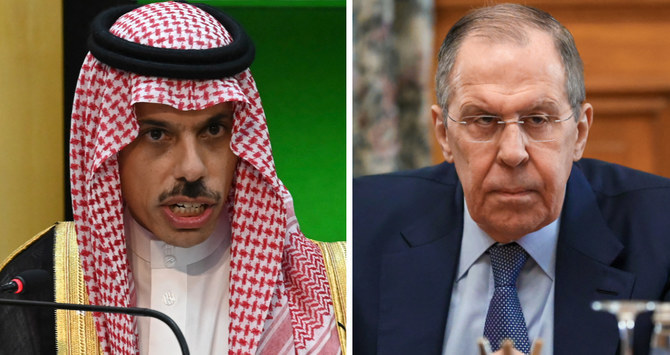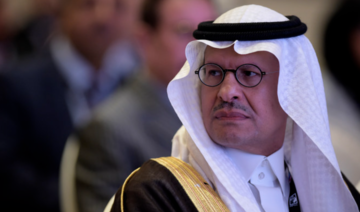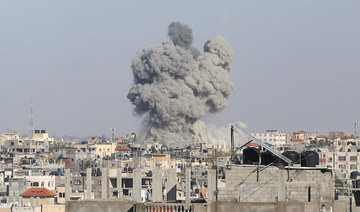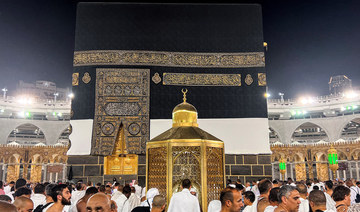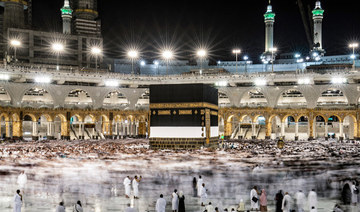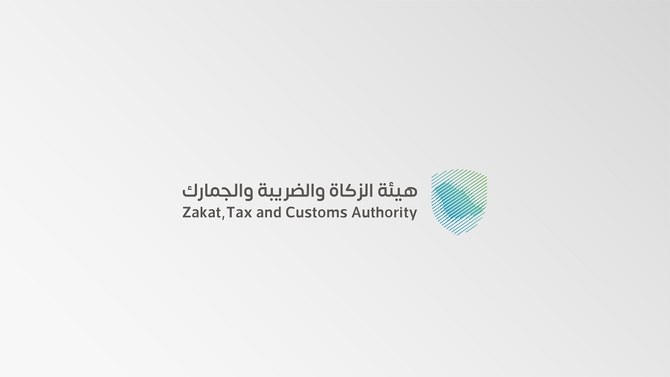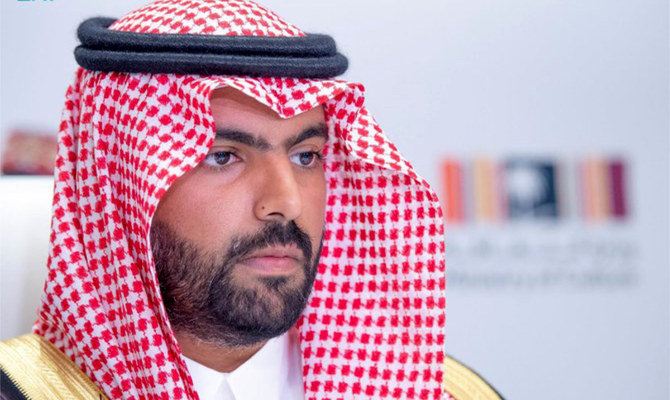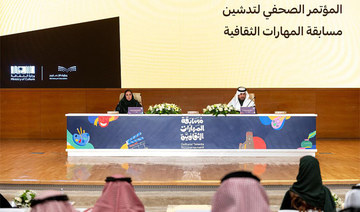MAKKAH: Khuzam Palace, one of the most important historical palaces in the Kingdom, has hosted several influential meetings between the leadership of Saudi Arabia and the US.
The palace’s first links with the US took place on May 29, 1933, when it witnessed the signing of the first agreement in the concession for oil exploration between the Saudi government, represented by Minister of Finance Sheikh Abdullah bin Suleiman, and Standard Oil of California, represented by Lloyd Hamilton.
Faisal Ibrahim Al-Shammari, writer and political analyst specializing in American affairs, said that Khuzam Palace was central to the founding of the country as it received foreign delegations during the reigns of King Abdulaziz and King Saud.
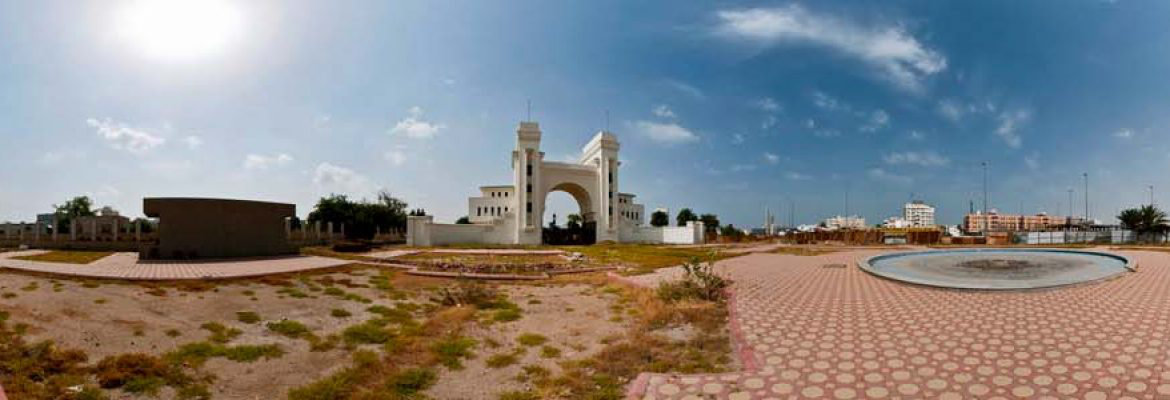
General view of Khuzam Palace, located in Al-Nazla Al-Yamaniya in the southeast of historic Jeddah. (Supplied)
Khuzam Palace also played a prominent role in the establishment of Saudi-American relations before they became official. Special relations were established with the American private sector, represented by the launch of the Arabian-American Oil Company, which later became Aramco.
Al-Shammari added that people are mistaken if they think that the early days of Saudi -US relations were just political, noting that they also involved economic links.
He said that the relations that were established in Khuzam Palace with the American private sector played a fundamental role in strengthening political relations, noting the healthy economic relations with successive US administrations and that trade remains expansive amid large bilateral investments.
Al-Shammari stressed that Khuzam Palace represents the beginning of Saudi-American relations before the meeting of US President Franklin Roosevelt with King Abdulaziz aboard the USS Quincy.
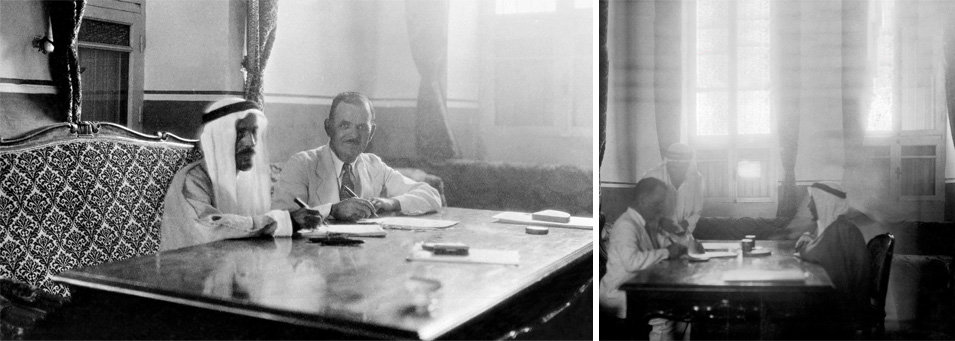
Khuzam Palace played a prominent role in the establishment of Saudi-American relations before they became official. (Supplied)
Saleh Al-Misnad Al-Tamimi, a researcher specializing in contemporary Saudi history, told Arab News that Khuzam Palace is one of the most important historical palaces in the modern era because of its main role in shaping the building blocks of historical Saudi-American relations.
Located in Al-Nazla Al-Yamaniya in the southeast of historic Jeddah, construction began in 1928 and was completed in 1932.
“The site of the palace was chosen for the good climate of the area,” the researcher said, adding that “some say that the reason for calling the palace ‘Khuzam’ is due to the presence of the Khuzam (tulip) plant in and around it, but no source or document proves the validity of this.”
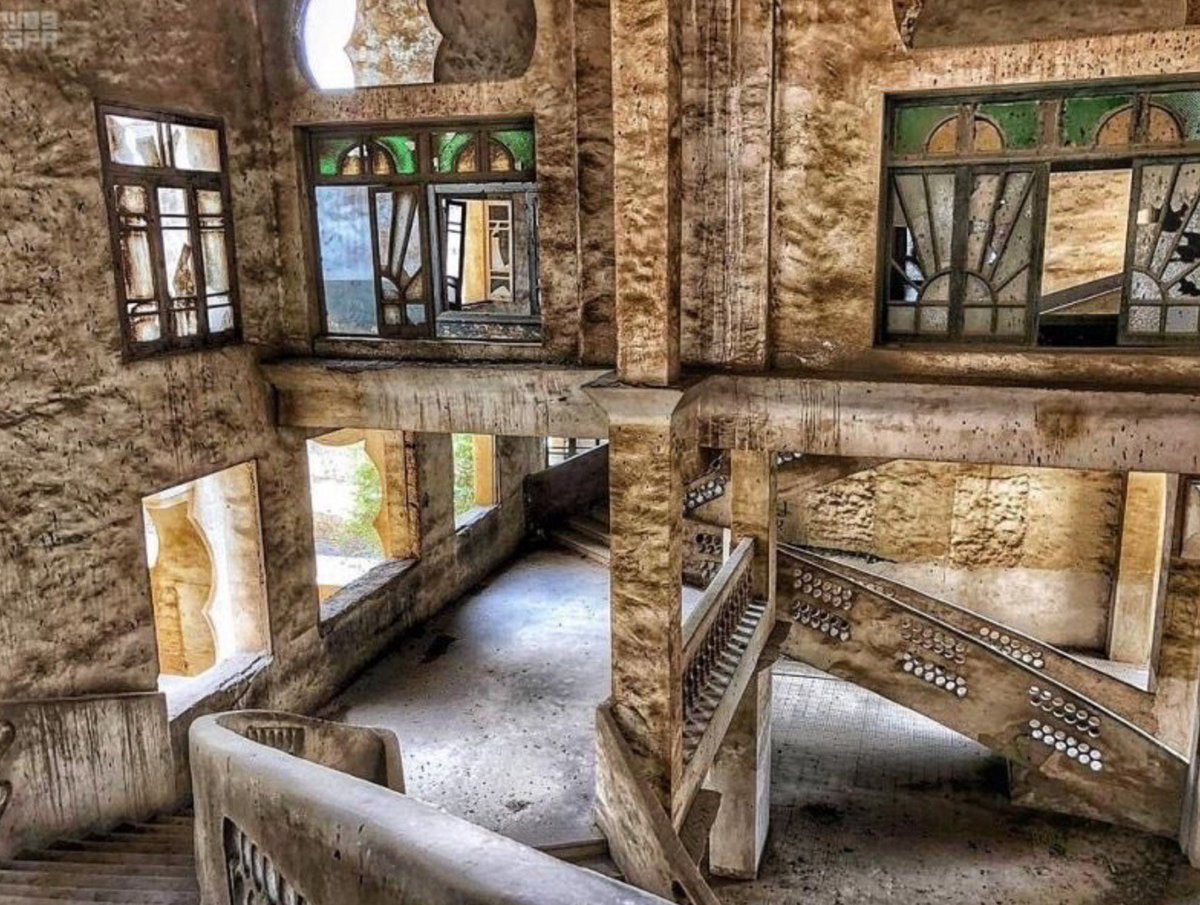
Khuzam palace was built of stone bricks and its roof was constructed using Javanese wood. (Supplied)
Al-Tamimi said: “If we check Arabic sources for the meaning of ‘Khuzam,’ we will find that it means the leash with which the camel is led and tied to its nose. Moreover, the repetition of the name ‘Khuzam’ for the palaces of King Abdulaziz confirms that the name does not relate to the ‘Khuzam’ plant.”
He added that the construction of the palace was completed by builders from Jeddah under the supervision of Mohammad Awad bin Laden.
“The palace was built of stone bricks and its roof was constructed using Javanese wood,” said Al-Tamimi.
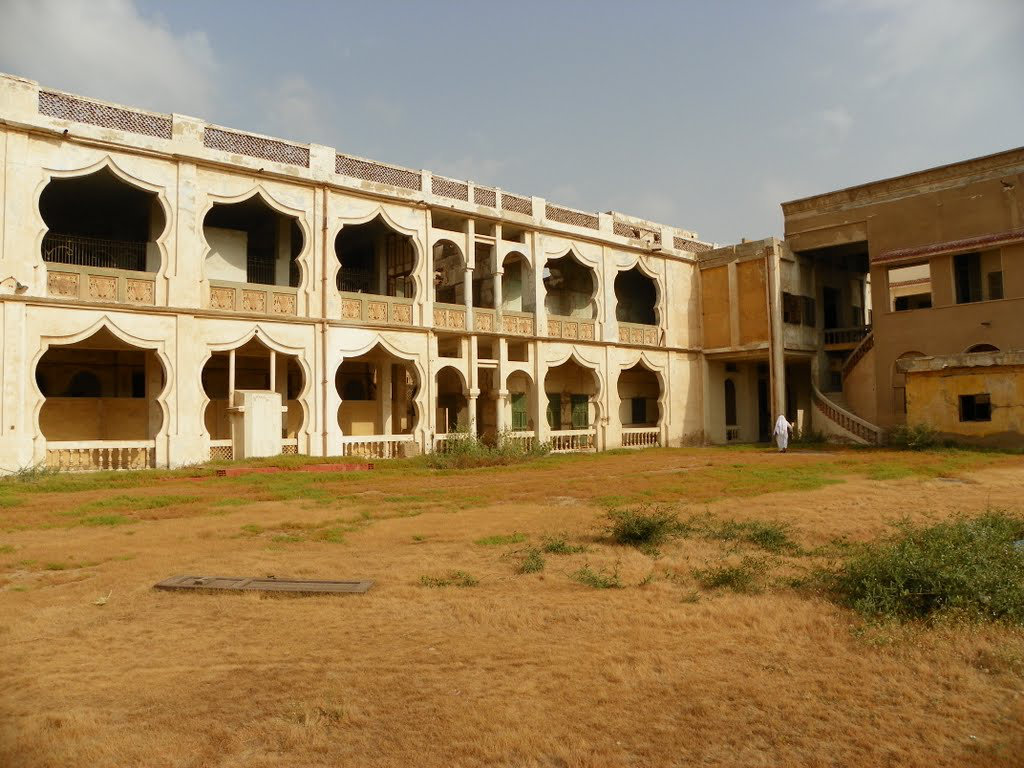
The site of Khuzam Palace was chosen for the good climate of the area, according to researcher Saleh Al-Misnad Al-Tamimi. (Supplied)
“About three years later, the Egyptian National Company built annexes to it that were made of reinforced concrete, including the palace that King Abdulaziz used to receive kings, heads of state, ministers, ambassadors and senior officials,” he added.
The palace also hosted the signing ceremonies for a border agreement with Kuwait and a reciprocal memorandum with Egypt regarding construction projects on July 29, 1940. Other notable events that took place at the palace include the renewal of the Treaty of Jeddah with the British government in 1943, the signing of the Dhahran Airfield Agreement with the US, a commercial agreement with Syria, and a friendship treaty with Pakistan.
The palace’s place in Saudi history even made its way onto the national currency. “The image of the palace's main gates was printed on the Saudi banknotes in 1955,” said Al-Tamimi.
